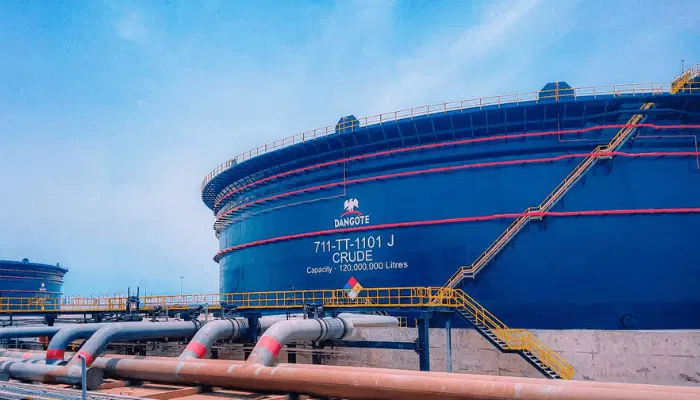The National Petroleum Authority of Ghana (NPAG) is proposing to import refined petroleum products from Dangote Refinery as part of its strategy to enhance energy security and strengthen regional economic cooperation. Dr. Mustapha Abdul-Hamid, the Chief Executive Officer of NPAG, announced this initiative during the 2024 OTL Africa Downstream Energy Week in Lagos.
Key Highlights from the Announcement:
- Energy Security: The agreement with Dangote Refinery aims to reduce Ghana’s reliance on costly imports from Rotterdam, thereby bolstering the country’s energy security.
- Regional Cooperation: Ghana has expanded its export agreements to include Burkina Faso, Mali, and Niger, which involves supplying operational facilities for international purposes, including U.S. military bases.
- Infrastructure and Currency Concerns: Abdul-Hamid emphasized the need for unified investments in infrastructure to lower transportation costs and improve distribution within West Africa. He also called for the establishment of a common West African currency to mitigate foreign exchange volatility, which currently strains local currencies and inflates operational costs.
- Shared Resources: He suggested that pooling human and infrastructure resources across the region could significantly strengthen economies, stressing that no African nation could achieve sustainable growth in isolation.
- Regulatory Framework: Abdul-Hamid advocated for aligned regulatory policies within the ECOWAS framework to facilitate seamless trade and enhance economic stability.
- Shared Infrastructure: The Ghana-Burkina Faso pipeline agreement was cited as a successful model for reducing dependence on tanker transport and ensuring consistent supply.
Commentary from Other Industry Leaders
Ms. Oluwatosin Aina, Group Head of Energy at First Bank of Nigeria Ltd., echoed Abdul-Hamid’s calls for a unified currency, noting the challenges posed by dollar-based transactions in petroleum dealings. She highlighted that ending Nigeria’s fuel subsidy has opened up investment opportunities in the downstream and midstream sectors.
Both Abdul-Hamid and Aina stressed the importance of aligning fiscal policies, petroleum infrastructure, and regulatory frameworks to address currency challenges and ensure affordable petroleum pricing for citizens.
Conclusion
The proposed importation of refined petroleum from Dangote Refinery signifies a strategic move by Ghana to enhance energy security while fostering regional cooperation. The discussions at the OTL Africa Downstream Energy Week highlight the urgent need for a collective approach among West African nations to overcome challenges in the energy sector and improve economic stability

